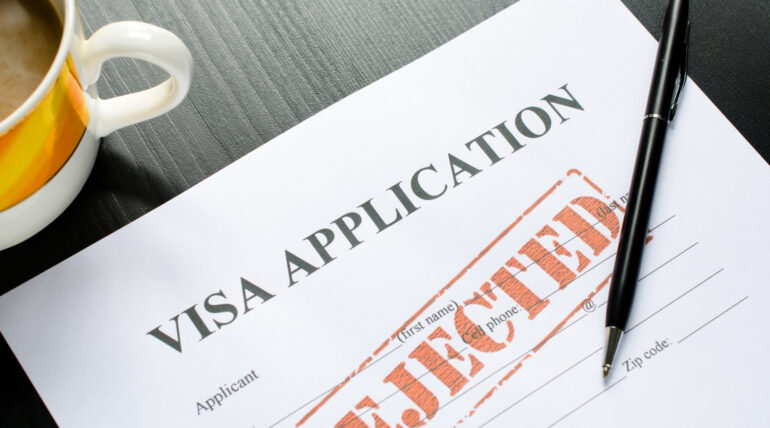
August 20, 2025
Spousal Sponsorship Refused? How to Appeal and Win Your Case in Canada”
Spousal Sponsorship Refused in Canada? Here’s How to Appeal and Win Your Case
A spousal sponsorship refusal in Canada is not just a procedural hurdle—it’s a deeply personal and heartbreaking interruption to a family’s journey. For many couples, the Canadian immigration process represents far more than forms and documents. It is an emotional investment in a shared future, a pathway to reunification, and the foundation for building a family in Canada.
When that dream is interrupted by a rejection letter from IRCC (Immigration, Refugees and Citizenship Canada), the impact is legal, emotional, and profoundly personal.
Processing Times Make Refusals Even Harder
At the time of writing, spousal sponsorship processing times are substantial:
- 41 months for inland (applications made within Canada)
- 11 months for outland (applications made outside Canada)
To wait months—or even years—only to face a sponsorship application refusal is understandably devastating. However, there are structured legal remedies available to challenge or correct that decision, provided you respond strategically and within legal timelines.
Step 1: Understand the Exact Reason for Refusal
Before you take any legal action, you must know why your spousal sponsorship was refused. Without this clarity, your next move is guesswork.
The most effective first step is to request your GCMS (Global Case Management System) notes through an ATIP (Access to Information and Privacy) request. These officer-written records reveal the real rationale for refusal—whether it was:
- Insufficient proof of a genuine relationship
- Missing or incomplete documents
- Concerns about admissibility to Canada
- Misunderstanding of key facts or timelines
Once these notes are in hand, a licensed immigration consultant or immigration lawyer can review them to determine the most strategic path forward.
Option 1: Reapplying After Refusal
In many cases, reapplying for spousal sponsorship is the most accessible route. However, simply resubmitting the same documents is a recipe for another refusal.
Before reapplying, ask:
- Do we have new evidence that strengthens our case?
- Can we present a more credible and consistent narrative of our relationship?
- Were key milestones in our relationship poorly explained or missing context?
Success in a reapplication depends less on the volume of evidence and more on quality, clarity, and legal relevance.
Option 2: Filing a Reconsideration Request
A reconsideration request is an informal remedy where you ask the original visa officer or processing centre to review their decision based on:
- A clear error in law or fact
- A breach of procedural fairness (e.g., you were not given a fair chance to respond to concerns)
- Ignored or misapplied evidence
While this option can work, it is only advisable if there’s an obvious and well-documented error. Success rates are generally low unless the mistake is indisputable.
Option 3: Appeal to the Immigration Appeal Division (IAD)
If your refusal is under the Family Class (outland sponsorship), the sponsor—a Canadian permanent resident or citizen—has the legal right to appeal to the Immigration Appeal Division (IAD) under Section 63(1) of the Immigration and Refugee Protection Act (IRPA).
The IAD process is de novo, meaning:
- You can submit new evidence
- The relationship is re-evaluated from scratch
- Procedural fairness must be respected
Key points:
- Only the sponsor can file the appeal, not the sponsored spouse
- You must submit the Notice of Appeal within 30 days of the refusal
- Inland sponsorships are not eligible for IAD appeals
With skilled legal representation, IAD appeals can overturn refusals and validate your relationship in the eyes of Canadian immigration law.
Option 4: Judicial Review at the Federal Court
If you are not eligible for an IAD appeal, you may seek a Judicial Review at the Federal Court of Canada. This is not a re-hearing of your case—it examines whether the visa officer’s decision was unreasonable or procedurally unfair.
Judicial reviews require strict compliance with deadlines and a strong legal argument.
Strategic Takeaway: Choose the Right Remedy, Not the Fastest One
After a spousal sponsorship refusal, the natural instinct is to act quickly. But in immigration law, strategy is everything. The right path depends on:
- The immigration category of your application
- The legal grounds for refusal
- Your long-term immigration goals
- The strength of your available evidence
- Statutory deadlines
How MyWorld Immigration Can Help
At MyWorld Immigration, we understand both the legal and emotional weight of a spousal sponsorship rejection. Our team:
- Reviews refusal reasons with precision
- Requests and analyzes GCMS notes
- Builds legally sound reapplications with stronger evidence
- Prepares and represents clients in IAD appeals
- Guides judicial review processes when necessary
We take a case-by-case approach, grounded in immigration law, evidence, and compassion—because behind every application is a family waiting to be together.
Facing a Spousal Sponsorship Refusal in Canada?
You don’t have to go through this alone. Contact MyWorld Immigration today for a confidential consultation. Let’s make sure your next step brings you closer to approval—and closer to the person you love.
Call us today or visit myworldimmigration.com to get started.
